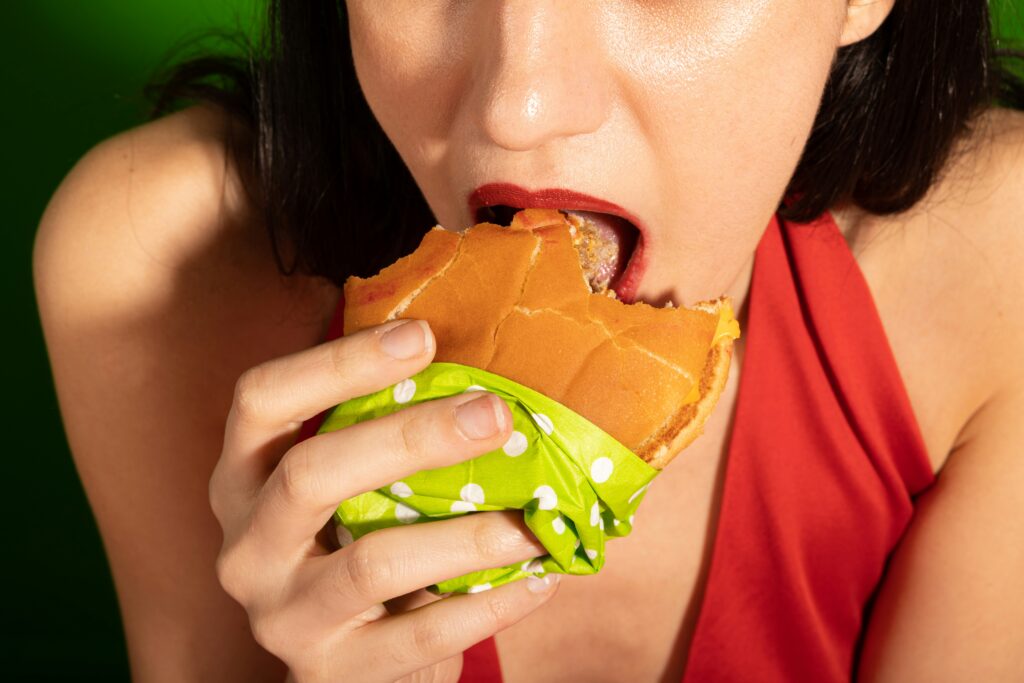In a world where stress is a constant companion and comfort food is just a drive-thru away, emotional eating has become a common struggle for many people. Whether it’s reaching for that pint of ice cream after a rough day or indulging in a bag of chips when feeling anxious, emotional eating can derail both your health goals and emotional well-being.
Emotional eating is the act of using food to suppress or soothe negative emotions, such as stress, sadness, anger, boredom, or loneliness. While it’s normal to occasionally indulge in your favorite treat to celebrate or relax, emotional eating becomes problematic when it’s a habitual way of dealing with emotions.
Unlike eating to satisfy physical hunger, emotional eating is driven by feelings, not your body’s natural need for nourishment. This often leads to overeating, guilt, and even weight gain, creating a vicious cycle that’s tough to escape.
What Causes Emotional Eating?

Emotional eating doesn’t happen in a vacuum. It’s often triggered by a combination of emotional, biological, and psychological factors. Here are some of the most common causes:
1. Stress
When you’re stressed, your body releases cortisol—a hormone that increases appetite and intensifies cravings for high-fat, high-sugar foods. This “stress eating” can temporarily soothe your nerves but often leaves you feeling worse afterward.
2. Emotional Triggers
Negative emotions like sadness, loneliness, or anger can drive people to seek comfort in food. The act of eating may provide a temporary distraction or numbness, but it doesn’t address the root of the emotional pain.
3. Habitual Behavior
For some, emotional eating becomes a learned habit. For example, if you grew up being rewarded with treats for good behavior, you might associate food with comfort and happiness as an adult.
4. Biological Factors
Low levels of serotonin—a brain chemical linked to happiness—can lead to cravings for sugary or carb-heavy foods, which temporarily boost your mood. Hormonal fluctuations, like those during PMS, can also make emotional eating more likely.
5. Lack of Coping Mechanisms
If you don’t have healthy ways to process emotions, food might become your go-to solution. This is especially true if you were never taught effective coping strategies or if your emotional needs aren’t being met in other areas of your life.
Signs You Might Be An Emotional Eater

How can you tell if emotional eating is a challenge for you? Here are some common signs:
- You eat when you’re not hungry, especially during moments of stress or sadness.
- You often crave specific comfort foods like sweets, chips, or pizza.
- You feel guilty or ashamed after eating, but the cycle continues.
- You eat to avoid dealing with your emotions.
- You tend to snack mindlessly while watching TV or scrolling your phone.
How to Overcome Emotional Eating

Breaking free from emotional eating is absolutely possible! While it might take time and effort, the rewards—improved mental and physical health—are well worth it. Here are some practical strategies to help you get started:
1. Identify Your Triggers
The first step to overcoming emotional eating is recognizing the situations or feelings that trigger it. Keep a food journal to track when and why you eat. Are you stressed from work? Lonely on a Friday night? Once you pinpoint the triggers, you can work on addressing them directly.
2. Find Alternative Coping Mechanisms
Instead of turning to food, try other activities that help you process emotions or reduce stress. Some ideas include:
- Exercising (even a quick walk can help!)
- Journaling your thoughts and feelings
- Practicing mindfulness or meditation
- Calling a friend or loved one for support
- Engaging in a creative hobby, like painting or knitting
3. Practice Mindful Eating
Mindful eating is all about being present and intentional with your food choices. Before you eat, ask yourself: Am I actually hungry, or am I eating out of habit or emotion? If it’s the latter, pause and reflect before reaching for the snack.
When you do eat, focus on savoring each bite—this will help you enjoy your food more and reduce overeating.
4. Address Underlying Emotions
Sometimes, emotional eating stems from unresolved feelings. Consider talking to a therapist or counselor who can help you work through those emotions in a constructive way. Therapy can provide invaluable tools for understanding and managing your emotional health.
5. Stock Up on Healthy Options
If cravings strike, having healthier snacks on hand can make all the difference. Keep fresh fruits, nuts, or yogurt in your kitchen so you’re less tempted by junk food.
6. Build a Balanced Routine
Getting enough sleep, staying hydrated, and maintaining a balanced diet can all help regulate your mood and reduce the likelihood of emotional eating. When your body is well-rested and nourished, it’s easier to handle stress without turning to food.
The Role of Self-Compassion

Overcoming emotional eating isn’t about being perfect—it’s about progress. Be kind to yourself when you slip up, and remember that change takes time. Punishing yourself with guilt or harsh self-talk will only perpetuate the cycle. Instead, treat each mistake as a learning opportunity and move forward with determination and grace.
You’ve Got This!
Emotional eating is a common challenge, but it’s not an insurmountable one. By understanding your triggers, finding healthier ways to cope, and practicing mindfulness, you can take back control of your relationship with food.
Remember, it’s not just about what you eat—it’s about why you eat. When you address the root causes of emotional eating, you can build healthier habits that nourish both your body and mind.
So, the next time stress or sadness hits, take a deep breath, check in with yourself, and remember: you’re stronger than your cravings.


